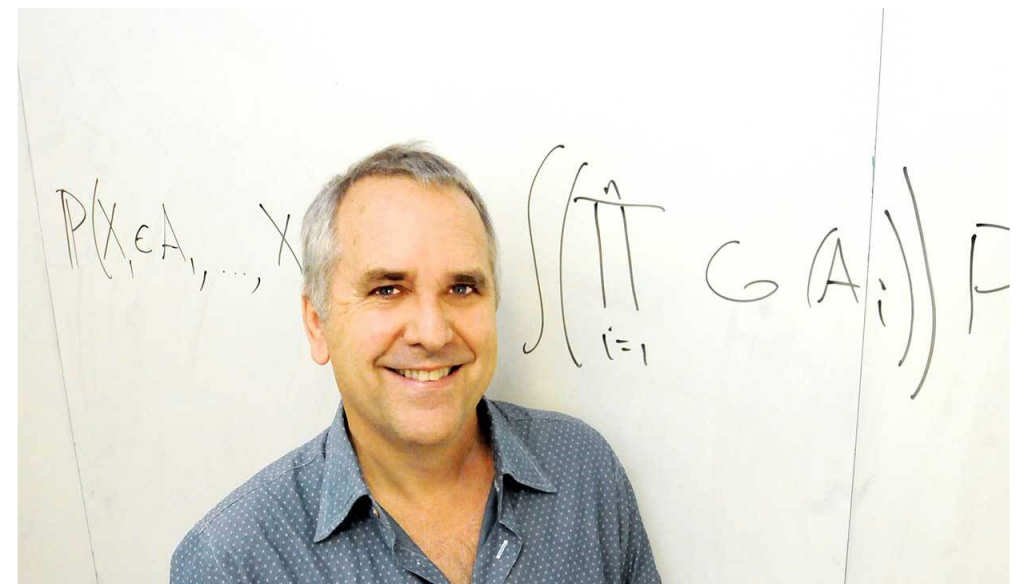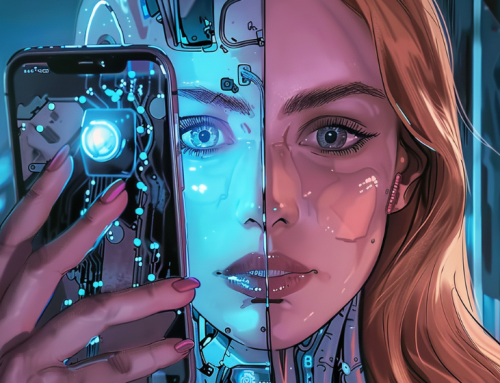
Researcher Michael Jordan challenges AI and ML identifications in reports. Photo: Peg Skorpinski
Stop Calling Everything AI
Remember Michael Jordan, the basketball superstar? And do you recall Michael B. Jordan the movie star? There must be something magical bout that name because we found an article in spectrum.ieee.org that highlights another Michael Jordan who is a superstar in the field of AI. Michael I. Jordan says we are misidentifying what AI and Machine Learning really are and he explains why in a piece by Kathy Pretz.
“While the science-fiction discussions about AI and super intelligence are fun, they are a distraction,” he says. “There’s not been enough focus on the real problem, which is building planetary-scale machine learning–based systems that actually work, deliver value to humans, and do not amplify inequities.”
In recent years, the AI Michael Jordan has been on a mission to help scientists, engineers, and others understand all that machine learning can do, which can be compared to “the emergence of a new field of engineering.” He compares it to how chemical engineering advanced in the early 1900s from chemistry and fluid mechanics developments, since machine learning “builds on decades of progress in computer science, statistics, and control theory.” He calls it the first “human-centric” engineering field, which interfaces people and technology.
Jordan studied psychology at Louisiana State University in Baton Rouge, where he earned a bachelor’s degree in 1978. He earned a master’s degree in mathematics in 1980 from Arizona State University, in Tempe, and in 1985 a doctorate in cognitive science from the University of California, San Diego.
“Thinking about thought as a logical process and realizing that computers had arisen from software and hardware implementations of logic, I saw a parallel to the mind and the brain,” Jordan says. “It felt like philosophy could transition from vague discussions about the mind and brain to something more concrete, algorithmic, and logical. That attracted me.”
Clearly Seeing AI
In 2019 Jordan wrote “Artificial Intelligence—The Revolution Hasn’t Happened Yet,” published in the Harvard Data Science Review. He explains in the article that the term AI is misunderstood not only by the public but also by technologists. Back in the 1950s, when the term was coined, he writes, people thought computers would think like people. While the goal of human-level intelligence still exists, computers have not become intelligent, but have capabilities that augment human intelligence, he writes. They excel at low-level pattern-recognition capabilities that would be costly for humans to perform.
For instance, Machine learning-based systems are able to detect fraud in financial transactions at a massive scale, enabling electronic commerce. They are essential in running supply chains in manufacturing and health care. Additionally, they help insurance agents, doctors, educators, and filmmakers
“I think that it’s important to recall that for all of the wonderful things science has done for the human species, it really is engineering—civil, electrical, chemical, and other engineering fields—that has most directly and profoundly increased human happiness.”
This article covers a lot of Jordan’s career and how he grew to the position he currently holds in the AI community and it is interesting to hear a major AI player call out his colleagues and pointing out the differences between understanding just what AI and ML really are by using examples. Already, AI is being used to shoot the perfect basketball shot and is writing scripts for movies or TV. AI will continue to move towards mimicking real human intelligence for centuries to come.
read more at spectrum.ieee.org/







Leave A Comment